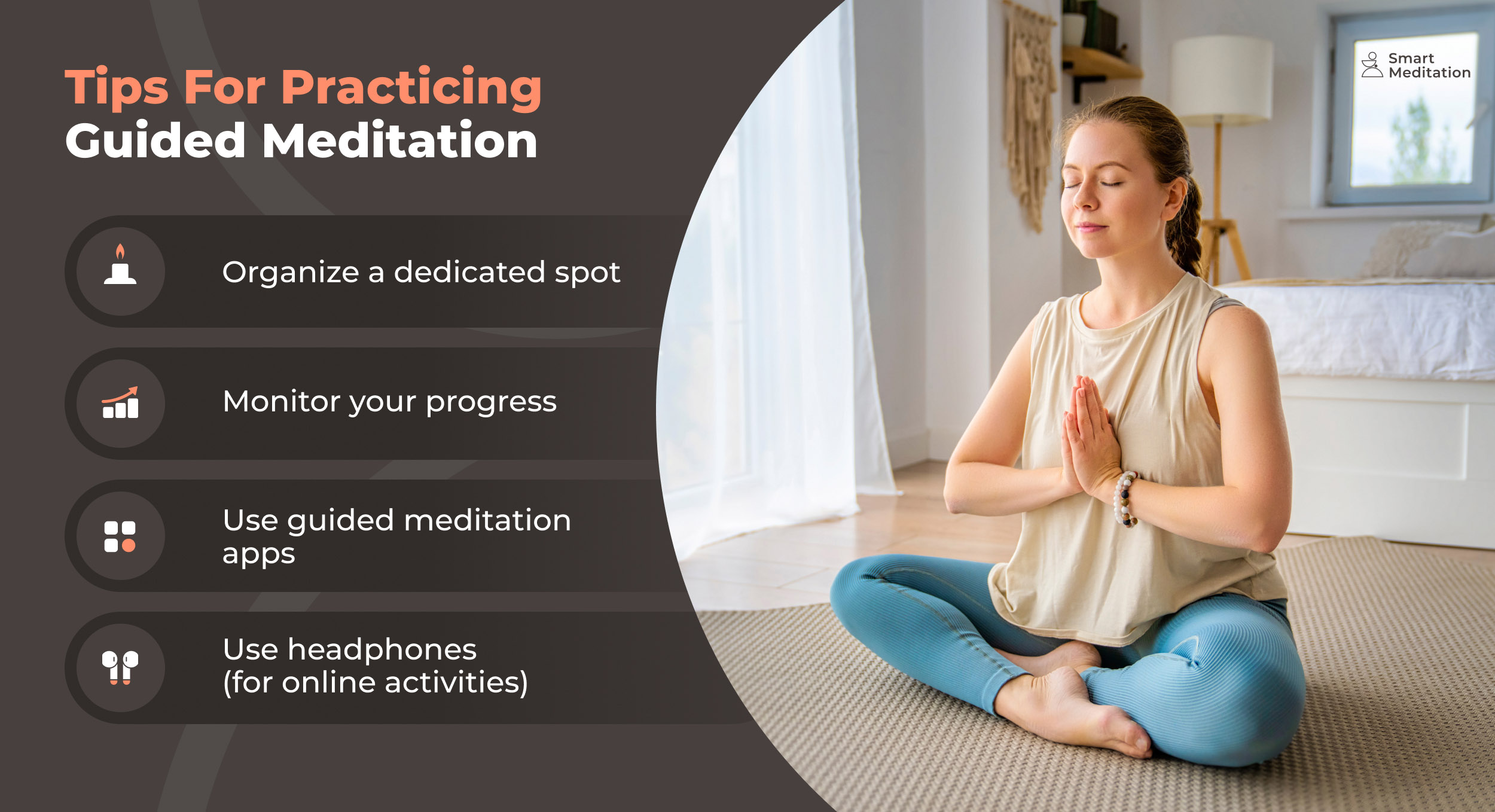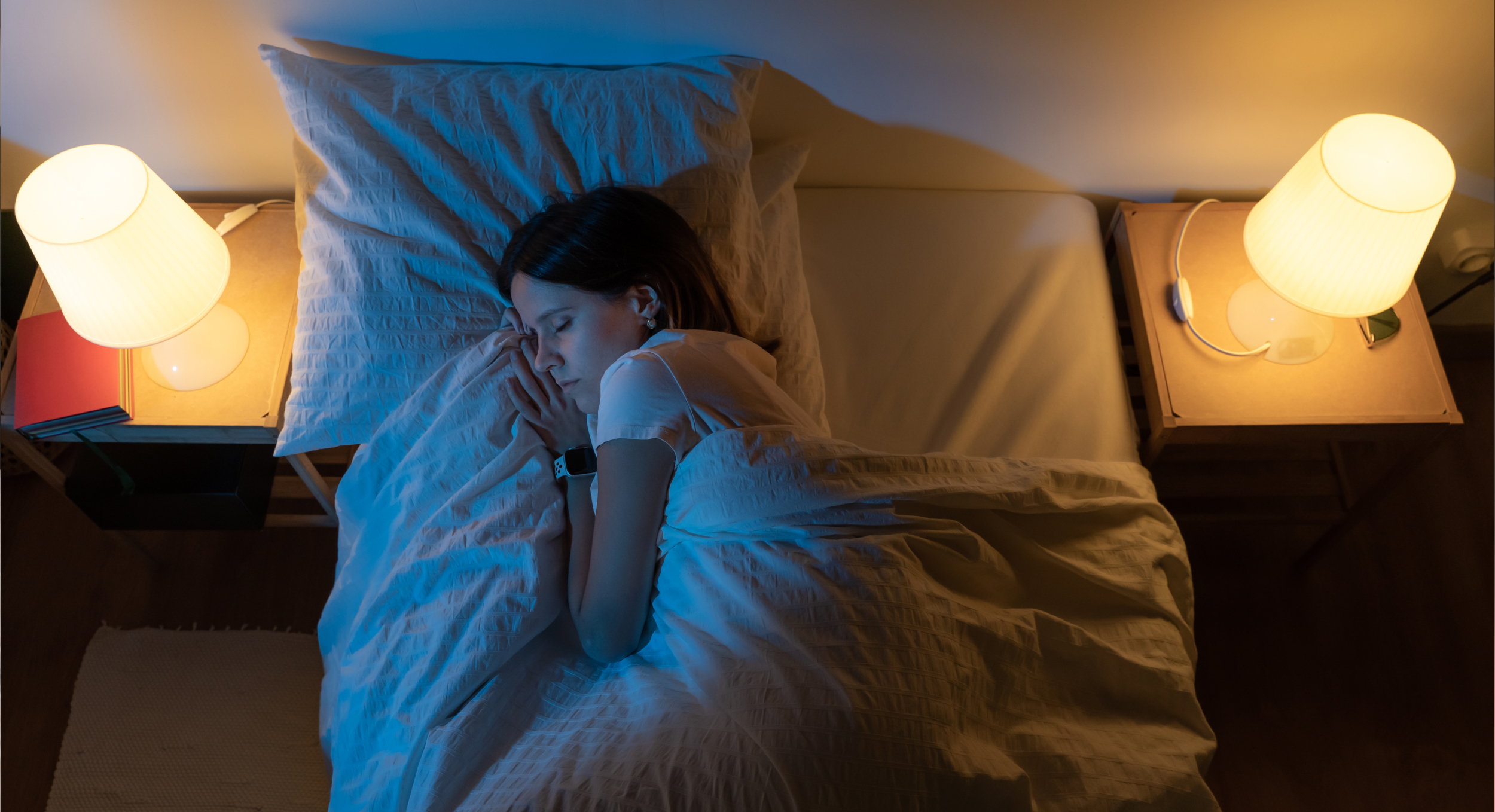
Best Meditations For Anxiety
Whether we like it or not, anxiety is a normal part of human life and is a completely natural reaction of our body to stressing circumstances. Everyone experiences anxiety occasionally, and while for some it can be a driver to develop resilience and perform better, for others it can become a massively detrimental state, worsening their productivity, mood, and general well-being.
One practice that is widely considered to be a very good counter to overwhelming anxiety is meditation. When we meditate, our heart rate, oxygen consumption and blood pressure decrease, calming us down. There are many great meditation techniques to help you cope with stress, but in this article we’d like to look into what we consider the best meditation for anxiety for beginners – guided meditation.
Benefits Of Guided Meditation
Guided meditation is a type of meditation practice whereby you’re getting instructions or assistance from another person. This could be done both online (through meditation apps, podcasts, audio tracks, live sessions with a coach) or offline (group meditation classes, 1-on-1 sessions with an instructor).
Guided meditation shares most of the benefits of other meditation practices such as relieving stress and improving sleep, but there are a few that are specific to this very type:
- Instructor’s guidance is immensely helpful and makes it very easy to learn the ropes of meditating quickly; in case of a live coach, you’ll also have a chance to ask for advice and clarify some points that are not very clear to you yet;
- Instructor’s calming voice can help create a secure and encouraging environment, cutting the feelings of loneliness to a minimum and building a sense of belonging;
- Guided meditations are very flexible – they don’t rely on a single technique; instead, they frequently incorporate various methods like mindfulness, loving-kindness, body scans, mantras, etc.
Tips For Practicing Guided Meditation
Here are some tips to get the most out of your guided meditation sessions:
- Organize a dedicated spot: Choose an area of your living space where you feel most comfortable and in peace with yourself and consistently use it for your sessions. Also, feel free to set the environment up in any way you like – accessories and decorations can be nice additions;
- Monitor your progress: Have a meditation diary where you can make notes about your sessions to see how your sensations evolve overtime. Witnessing proof of your development and the positive effects it has on your wellbeing helps you stay consistent;
- Use guided meditation apps: There are a lot of great apps on the market that help you create customized guided meditation programs and give you access to very rich media libraries of soothing audio tracks and podcasts;
- Use headphones (for online activities): This makes the guided meditation experience more immersive and enables you to focus on the coach’s voice and instructions even more.

5-Minute Meditation For Anxiety
If you want to start practicing meditation with something short and light, there are plenty of exercises that take no longer than 5 minutes. As an example, we can suggest the following 5 minute meditation for anxiety:
- Take a comfortable position – you may sit or lie down, whichever you prefer;
- Concentrate your mind on one of your five senses (sight, hearing, smell, taste, touch) and how they behave in the present moment; you can start with any one you like;
- Ask yourself what you’re sensing right now (what you’re smelling/hearing/seeing/touching/tasting) and how it makes you feel, don’t try to evaluate your sensation, just acknowledge it;
- Spend a minute focusing on this sense and then go over to another sense of your choice and repeat the process four more times with the rest of your senses.
10-Minute Guided Meditation For Anxiety
For a 10 minute guided meditation for anxiety, there are plenty of resources you can find online, including audio session scripts and YouTube videos. As an example of some of the best guided meditation for anxiety and sleep, we recommend you to try out a 10-minute guided meditation session from our Smart Meditation app.
15-Minute Meditation For Anxiety
Fifteen minutes may not be the most beginner-friendly choice, when it comes to meditation – if you’re just getting into it, we advise that you start with shorter sessions. However, If you feel comfortable with meditating for a quarter of an hour, you should enjoy the following 15 minute meditation for anxiety:
- Shut your eyes and sit down comfortably;.
- Concentrate on one specific part of your body – in this example, we’re going to start with feet (you may start with the head also);
- Tell yourself how your feet feel in the moment – do they feel tense or loose, warm or cold? Don’t forget that you just acknowledge the sensations, not evaluate or judge;
- After about a minute or two, travel your mind up your body (if you started with feet), and continue the exercise with your legs;
- Repeat the process by scanning each of your body parts, going upwards: legs, thighs, pelvis, abdomen, chest, shoulders, neck and, finally, head.

Conclusion
Guided meditation is one of the most helpful and beginner-friendly meditation practices. It provides all the perks of other meditation types, while adding the extra benefit of being even more immersive and providing support from another person.
Meditation sessions don’t have to be long – our above examples of 5 and 15 minute sessions will greatly help you deal with anxiety better. And for the best guided meditation for anxiety and depression that takes no more than 10 minutes, feel free to download our Smart Meditation app – there you’ll find plenty of great exercises to listen to and enjoy.






